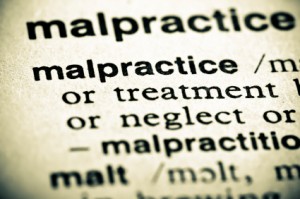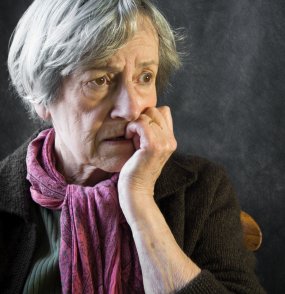Doctors, nurses, surgeons, and specialists are not infallible. They make mistakes. Sometimes, those mistakes go unnoticed. Sometimes, the mistakes are substantial, but do not cause any significant damage. Sometimes, those mistakes lead to serious and even fatal consequences. The result of a mistake is what determines whether or not a medical malpractice case is present.
It is the job of a medical malpractice attorney to determine if pursuing a medical malpractice lawsuit is economically justifiable.
 A medical malpractice attorney is going to spend a lot of time and money filing a claim against a medical provider that has wronged his or her client. Sometimes, as much as $100,000 dollars in out-of-pocket expenses, and as long as 5 or 6 years.
A medical malpractice attorney is going to spend a lot of time and money filing a claim against a medical provider that has wronged his or her client. Sometimes, as much as $100,000 dollars in out-of-pocket expenses, and as long as 5 or 6 years.
It doesn’t make sense for an attorney to spend $75,000 dollars of their own money, only to recover $25,000.
If a doctor misses a diagnosis, but eventually does make the diagnosis and no real damage was done, there is probably not a case. Yes, that doctor failed his or her patient, but that patient came out of the situation unscathed and is very lucky to have done so.
Sometimes, doctors miss cancer diagnoses, and by the time they catch it, the cancer has spread. That could cost a patient their life. Those cases are tragic, and may leave family members and loved ones with medical bills they can’t pay, and new struggles in life absent the deceased.
If a doctor makes a surgical error that will debilitate a patient for the rest of their lives, there is a case. If a doctor makes a surgical error that causes a bit of pain for a short time, but no real damage or negative effects, yes it’s unfortunate, but probably not a case.
The money won in a medical malpractice lawsuit is recovered for damages. If there are no damages, there is no case.
Think You Have a Medical Malpractice Case?
If you or a loved one have suffered damages due to the medical malpractice of a doctor, nurse, surgeon, or specialist, contact the Mininno Law Office for a free case evaluation.
Our medical malpractice attorneys will work hard to earn you to compensation that you DESERVE!
Yo can also talk to a medical malpractice attorney just calling for a free consulation at (856) 833-0600 in New Jersey, or (215) 567-2830 in Philadelphia.
Don’t wait! A statue of limitations could nullify your claim!

 By definition, an ombudsman is a government official who hears and investigates complaints by private citizens against other officials or government agencies.
By definition, an ombudsman is a government official who hears and investigates complaints by private citizens against other officials or government agencies.